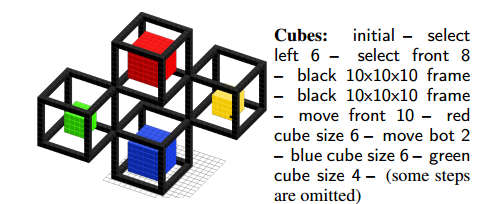| Naturalizing A Programming Language |
| Written by Mike James | |||
| Wednesday, 26 April 2017 | |||
|
This is an interesting idea: take a core programming language and allow the users to teach the system how they want to express their intentions. Instead of trying to use natural language as a computer language, why not develop computer languages in the direction of natural languages? Research conducted by Sida I. Wang, Samuel Ginn, Percy Liang, and Christopher D. Manning at the Computer Science Department of Stanford University takes a new approach to creating naturalistic command languages. Our goal is to create a convenient natural language interface for performing well-specified but complex actions such as analyzing data, manipulating text, and querying databases. However, existing natural language interfaces for such tasks are quite primitive compared to the power one wields with a programming language. To bridge this gap, we start with a core programming language and allow users to “naturalize” the core language incrementally by defining alternative, more natural syntax and increasingly complex concepts in terms of compositions of simpler ones. In a voxel world, we show that a community of users can simultaneously teach a common system a diverse language and use it to build hundreds of complex voxel structures. Over the course of three days, these users went from using only the core language to using the naturalized language in 85.9% of the last 10K utterances. In case you are wondering what a voxel world is there is a video explaining the system:
You can even try the system out at the Voxelurn website.
Starting from a fairly basic programming language, the system uses semantic parsing to allow ambiguity. Three modes of naturalization were found. The first were short forms for common operations, the second alternative, more natural, syntax and finally higher level operations. Notice that the same language was shared by all of the users - there were no private languages allowed.
More InformationNaturalizing a Programming Language via Interactive Learning Related ArticlesCutting Edge Languages At Curry On The Trick Of The Mind - Programming & Algorithmic Thought Verbal Expressions Are Easier Than Regular Ones MIT - Who Needs Programming Languages?
To be informed about new articles on I Programmer, sign up for our weekly newsletter, subscribe to the RSS feed and follow us on Twitter, Facebook or Linkedin.
Comments
or email your comment to: comments@i-programmer.info
|
|||
| Last Updated ( Thursday, 27 April 2017 ) |



